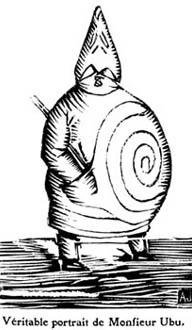User Login |
Mei Mei Berssenbrugge at Perogi gallery -WillFirst off, my mind seems to have shifted the start of this reading from 7 PM to 8 PM (I always want to think that I have more time), and so appeared at the perogi gallery during an intermission just before Mei Mei Berssenbrugge was to read. My apologies to Rusty Morrison and Monica de la Torre, the readers that I missed. After the social, Brenda Ijima, the organizer of the reading, bypassed an introduction, instead reminding Berssenbrugge that the reading was unamplified. I say this not to critique Brenda (the audience knew who was reading, everyone, myself included, had the chance to speak with Mei Mei during the intermission), but to point out that Berssenbrugge's voice sounds startlingly different without the artificial intimacy of the microphone which we got to hear at St. Marks, and which I have gotten used to over the years of listening to recordings. The audience sat on the floor, usually against the walls, while Berssenbrugge stood beside a stool with a stack of unbound papers on top (I'm not sure if either of the pieces she read that night were published. I suspect not) in front of the largest painting on display in the gallery. Like the rest of the pieces in the gallery, it appeared to be a large sheet of unmarked paper with strategic imperfections. I didn't notice who the artist was. They were very well lit. The first piece, whose name, if it had one, I didn't manage to record, but I think it may have been 'Placebo,' was prompted by a spread Berssenbrugge's husband, artist Richard Tuttle, did for 'W' magazine. Fashion was naturally a theme, as it would be in the other piece as well, how appearance is, its projections inward and outward, what it gives color and shape to, and the possible location(s?) of its potential. The whole piece was collected together through humor, particularly the lovably bloated line 'I feel love from the fashion community.' Other lines, disconnected, paraphrased: People I see in magazines are tall Style is your presence in me The other piece, entitled 'The New Boys,' was 'how boys were cleverly dressed,' according to the author, though it continued to flow through thoughts on (particularly the reception of) appearance, which mixes up the accentuation of clothes on the body, extending fashion onto the competitive masculine side of living in an intellectual arts community, as though arguments are made in order to be worn, as wearing such things takes up the task of proving one's own existence, but Berssenbrugge treats this behavior as a part of the fantasy that is fun to attach to a man, as though it is not something very serious on it's own. 'Young men at night seem hardly to exist' 'I like it when I can't see the source of light' This last line is particularly important to me as it brought out the fact that Berssenbrugge's poetry is, even at a poetry reading, read with the eyes, it needs to be seen as a process of vision, where the seer, the seen and the seeing all have their own knowledge that is silently said. This last statement is an expansion of what Chinese language poet Zhang Er has told me is an untranslatable assumption built into the Chinese language. Mei Mei Berssenbrugge, even though she has lived in the united states since age one, has called Chinese her first language, the one from which she approaches English. I feel more and more that the best way to look at her writing is closest approximated by a further removal of the ekphrastic intellectual, characteristic of Barbara Guest, who seeks to say what an artist sees when he or she realizes that they like the look of something.
categories [ Poetry Reviews ]
login or register to post comments | printer friendly version
|
